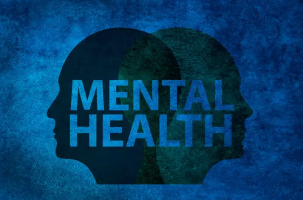
The Importance of Mental Health Days Post-Festivities: A Crucial Step in Employee Well-Being
The holiday season in India represents a period characterized by happiness, festivities, and the strengthening of bonds with family and friends. From Diwali to Christmas, the holidays offer a chance to recharge, take a break from the daily grind, and immerse oneself in the spirit of togetherness. However, once the festivities wind down, many employees find themselves facing an inevitable challenge: post-holiday blues and stress. As the excitement of the season fades, the mental and emotional toll of holiday activities, combined with work pressures, can lead to burnout, fatigue, and stress. To ensure employees are well-prepared to tackle their responsibilities in the new year, mental health days become a crucial tool for recovery and rejuvenation.
The festive season often brings a burst of color, energy, and excitement to corporate life. As an event management company specializing in corporate events and gifting, we at Six Sigma Events have a front-row seat to the hustle and bustle that goes into making the festive months memorable for employees. From Diwali parties to year-end corporate celebrations and elaborate gifting drives, the workplace transforms into a lively space filled with joy—but also, often, exhaustion.
The Silent Burnout After the Buzz
While festive events foster bonding and boost morale, the intense planning, participation, and post-event responsibilities can leave both employees and organizers mentally drained. Once the lights dim and the music fades, many are left running on empty. This is the point at which mental health days become essential.
we’ve observed that the energy output during festive seasons—especially for team, organizers, and even participant often results in post-event fatigue. For employees who give their all during corporate celebrations, it’s important that companies recognize the need for recovery not just physically, but mentally.
Why Mental Health Days Matter
1. Prevents Burnout: Allowing a mental health day helps employees recharge, avoiding long-term fatigue and disengagement.
2. Boosts Productivity: A well-rested mind performs better. After a short break, employees return with fresh ideas and renewed focus.
3. Enhances Emotional Well-Being: Time away from deadlines and social interactions gives space for reflection and self-care.
4. Encourages Work-Life Balance: It shows that the organization cares about more than output—it values the people behind it.
How Event Management Can Help Promote Mental Wellness
As a company involved in corporate events and gifting, we believe events shouldn’t end at entertainment—they should evolve into employee experience strategies. Here are ways we help our clients go beyond the celebration:
* Mindful Event Planning: We structure event timelines with consideration for employee workload, avoiding overlap with peak business periods.
* Wellness-Focused Gifting: Instead of generic gifts, we curate hampers with wellness items—essential oils, herbal teas, journals, and mindfulness kits.
* Post-Event Wellness Reminders: We provide clients with customized thank-you packages or emails that include self-care tips, mental health app suggestions, or even an extra day off coupon.
* Silent Zones & Recharge Corners at Events: For larger gatherings, we design quiet corners where attendees can relax—encouraging balance even during celebrations.
Setting a New Corporate Culture
We encourage team and company leaders to normalize the conversation around post-event recovery. Hosting great events is important—but supporting employees after the confetti has settled is essential. Mental health days ought to be regarded not as a luxury, but as an essential requirement—particularly following intense periods such as festivals.
we’re committed to helping our clients not just celebrate better, but recover better.
Conclusion: The Long-Term Value of Prioritizing Mental Health
As the awareness around mental health continues to grow in the workplace, it’s clear that the need for rest and recovery post-festivities is just as crucial as physical health. Mental health days and employee well-being programs can play a significant role in reducing stress, boosting morale, and improving overall job satisfaction. Companies that prioritize mental wellness can create healthier, more productive work environments where employees thrive both personally and professionally.
By adopting these practices and integrating them into workplace culture, organizations in India not only help employees recover from post-festive stress but also lay the foundation for sustained well-being throughout the year. Prioritizing mental health is not just a trend; it is an investment in the long-term success and happiness of both employees and the company as a whole.
“After the noise of celebration fades, give yourself the silence to heal — rest is not a reward, it’s a necessity.”
Pankaj Badra
